-
 bitcoin
bitcoin $87959.907984 USD
1.34% -
 ethereum
ethereum $2920.497338 USD
3.04% -
 tether
tether $0.999775 USD
0.00% -
 xrp
xrp $2.237324 USD
8.12% -
 bnb
bnb $860.243768 USD
0.90% -
 solana
solana $138.089498 USD
5.43% -
 usd-coin
usd-coin $0.999807 USD
0.01% -
 tron
tron $0.272801 USD
-1.53% -
 dogecoin
dogecoin $0.150904 USD
2.96% -
 cardano
cardano $0.421635 USD
1.97% -
 hyperliquid
hyperliquid $32.152445 USD
2.23% -
 bitcoin-cash
bitcoin-cash $533.301069 USD
-1.94% -
 chainlink
chainlink $12.953417 USD
2.68% -
 unus-sed-leo
unus-sed-leo $9.535951 USD
0.73% -
 zcash
zcash $521.483386 USD
-2.87%
Domestic Bitcoin Mining Tutorial
Bitcoin mining involves utilizing specialized hardware called ASICs, configuring mining software, selecting a mining pool, and establishing a wallet for reward reception, ensuring a comprehensive understanding of the process.
Jan 09, 2025 at 03:19 pm
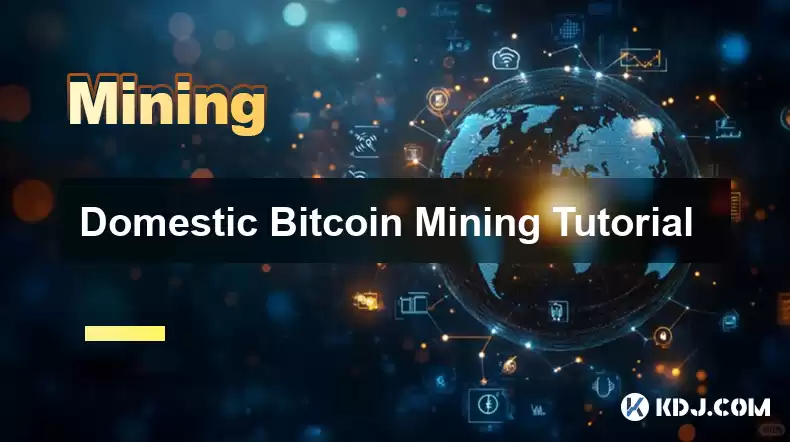
- Understanding the Basics of Bitcoin Mining
- Hardware Requirements for Bitcoin Mining
- Software Setup for Bitcoin Mining
- Choosing a Mining Pool
- Setting Up a Wallet for Mining Rewards
Bitcoin mining is the process of verifying and adding new transactions to the Bitcoin blockchain. Miners solve complex mathematical equations to create a hash that verifies the validity of a block of transactions. Once a block is verified, it is added to the blockchain, and the miner is rewarded with newly minted Bitcoins.
2. Hardware Requirements for Bitcoin MiningThe most important hardware requirement for Bitcoin mining is a specialized mining device, known as an ASIC (Application-Specific Integrated Circuit). ASICs are designed specifically for mining Bitcoin and offer significantly higher efficiency and performance compared to traditional GPUs or CPUs.
Factors to consider when selecting an ASIC miner include its hash rate (the measure of mining power), power consumption, and cooling capabilities.
3. Software Setup for Bitcoin MiningTo connect your ASIC miner to the Bitcoin network and start mining, you need to install specific mining software. Popular software options include CGMiner, Awesome Miner, and Easy Miner.
The mining software allows you to configure your miner's settings, monitor its performance, and connect to a mining pool.
4. Choosing a Mining PoolJoining a mining pool combines the hashing power of multiple miners to increase the chances of finding a block. Pools distribute rewards to members based on their contribution.
When choosing a mining pool, consider its pool fee (the percentage of your earnings the pool takes), minimum payout threshold, and server stability.
5. Setting Up a Wallet for Mining RewardsTo receive your mining rewards, you need to create a Bitcoin wallet. Hardware wallets, such as Ledger or Trezor, are highly recommended for storing Bitcoin securely.
Alternatively, you can use software wallets like Electrum or Bitcoin Core.
FAQs:1. What other cryptocurrency can I mine besides Bitcoin?There are many other cryptocurrencies that can be mined, including Ethereum, Litecoin, and Dogecoin. The profitability of mining each cryptocurrency depends on factors such as its price, block reward, and difficulty.
2. How much does it cost to start Bitcoin mining?The cost of starting Bitcoin mining includes the cost of the ASIC miner, software, electricity, and maintenance. The total cost can range from a few thousand to tens of thousands of dollars, depending on the equipment and setup.
3. Is Bitcoin mining profitable?The profitability of Bitcoin mining varies widely depending on factors like Bitcoin price, block reward, and mining difficulty. It's important to carefully calculate the potential earnings and expenses before making an investment in mining equipment.
4. How often does the Bitcoin block reward halve?The Bitcoin block reward halves approximately every four years, which means the number of Bitcoins rewarded for mining a block decreases over time.
5. What is the future of Bitcoin mining?Bitcoin mining technology continues to evolve, with new innovations such as more efficient ASICs and renewable energy sources being developed. The long-term future of Bitcoin mining depends on factors like the price of Bitcoin, technological advancements, and regulatory changes.
Disclaimer:info@kdj.com
The information provided is not trading advice. kdj.com does not assume any responsibility for any investments made based on the information provided in this article. Cryptocurrencies are highly volatile and it is highly recommended that you invest with caution after thorough research!
If you believe that the content used on this website infringes your copyright, please contact us immediately (info@kdj.com) and we will delete it promptly.
- Fantasy Football Frenzy: Key Picks and Pointers for Premier League Round 24
- 2026-01-31 06:40:02
- Coinbase and Crypto ISAC Forge Alliance, Setting New Standards for Security Intelligence in the Digital Asset World
- 2026-01-31 04:35:01
- US Mint Honors Revolutionary War Hero Polly Cooper on 2026 Sacagawea Coin
- 2026-01-31 03:55:01
- Bitcoin Hits $83K Amidst Risk-Off Selling Frenzy, ETFs See Major Outflows
- 2026-01-31 04:35:01
- New 2026 Dollar Coin Shines a Light on Oneida Heroine Polly Cooper and America's First Allies
- 2026-01-31 04:15:01
- Polly Cooper, Oneida Woman, Honored on 2026 U.S. $1 Coin for Revolutionary War Heroism
- 2026-01-31 04:25:01
Related knowledge
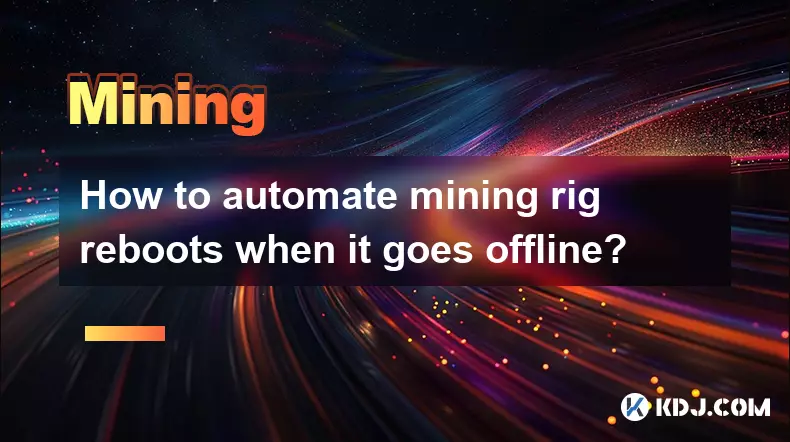
How to automate mining rig reboots when it goes offline?
Jan 23,2026 at 11:00pm
Monitoring System Integration1. Deploy a lightweight agent on the mining rig’s host OS that continuously reports hash rate, GPU temperature, and pool ...
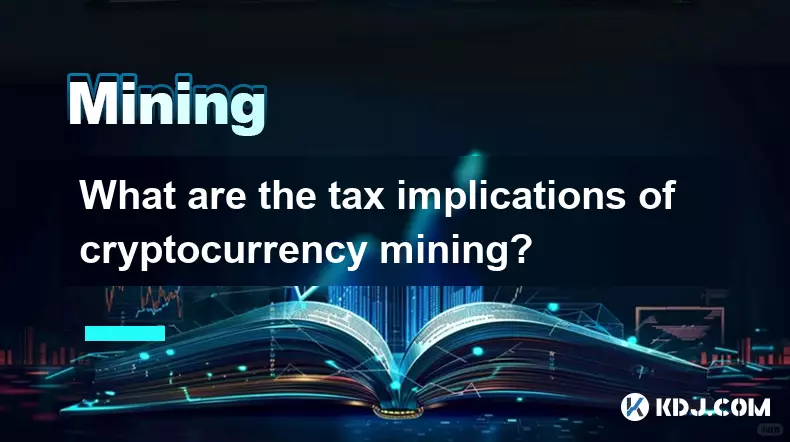
What are the tax implications of cryptocurrency mining?
Jan 23,2026 at 02:40am
Tax Treatment of Mining Rewards1. Cryptocurrency received as a reward for mining is treated as ordinary income by the IRS at the fair market value on ...
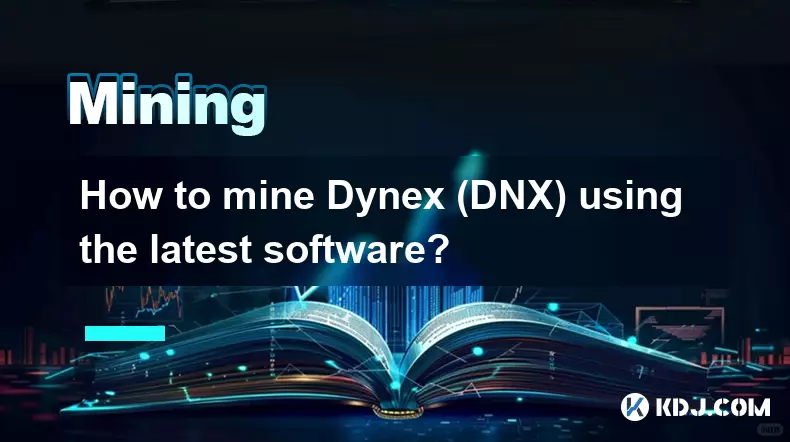
How to mine Dynex (DNX) using the latest software?
Jan 22,2026 at 10:00am
Understanding Dynex Mining Fundamentals1. Dynex (DNX) operates on a proof-of-work consensus mechanism optimized for neuromorphic computing workloads, ...
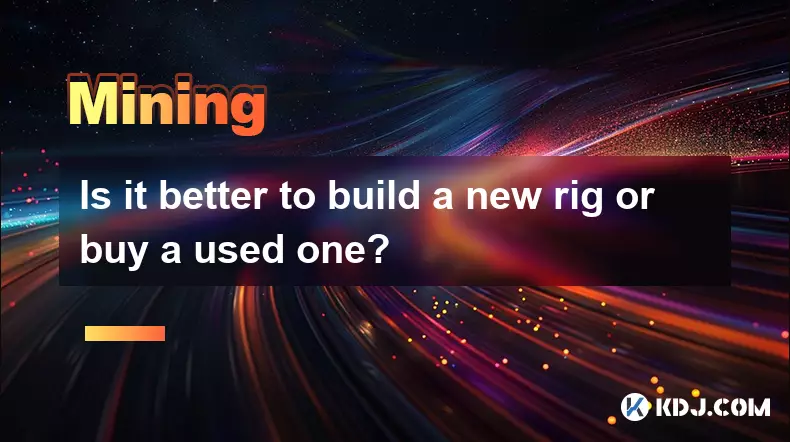
Is it better to build a new rig or buy a used one?
Jan 24,2026 at 10:20pm
Cost Efficiency Analysis1. New mining rigs come with manufacturer warranties, typically covering components for one to three years. This assurance red...
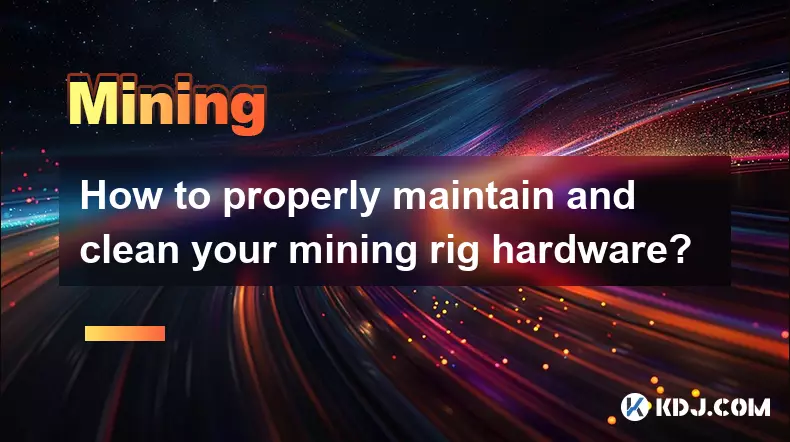
How to properly maintain and clean your mining rig hardware?
Jan 19,2026 at 11:00am
Cooling System Inspection and Optimization1. Dust accumulation inside fans and heatsinks directly reduces thermal dissipation efficiency, leading to h...
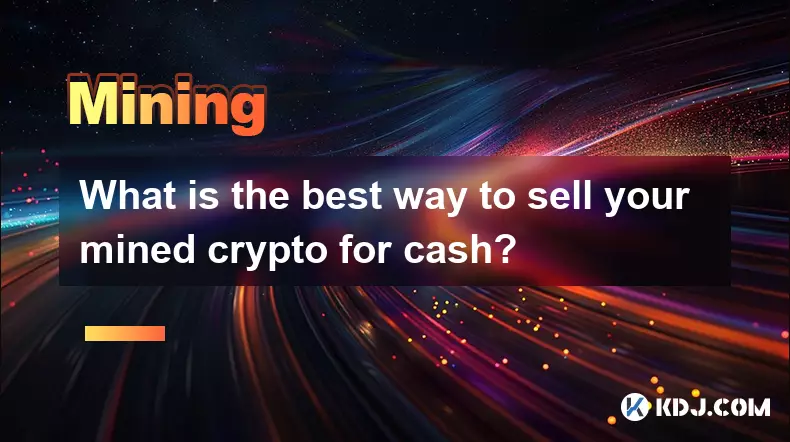
What is the best way to sell your mined crypto for cash?
Jan 20,2026 at 02:59am
Choosing the Right Exchange Platform1. Select an exchange with strong regulatory compliance and a proven track record of secure withdrawals. Platforms...

How to automate mining rig reboots when it goes offline?
Jan 23,2026 at 11:00pm
Monitoring System Integration1. Deploy a lightweight agent on the mining rig’s host OS that continuously reports hash rate, GPU temperature, and pool ...

What are the tax implications of cryptocurrency mining?
Jan 23,2026 at 02:40am
Tax Treatment of Mining Rewards1. Cryptocurrency received as a reward for mining is treated as ordinary income by the IRS at the fair market value on ...

How to mine Dynex (DNX) using the latest software?
Jan 22,2026 at 10:00am
Understanding Dynex Mining Fundamentals1. Dynex (DNX) operates on a proof-of-work consensus mechanism optimized for neuromorphic computing workloads, ...

Is it better to build a new rig or buy a used one?
Jan 24,2026 at 10:20pm
Cost Efficiency Analysis1. New mining rigs come with manufacturer warranties, typically covering components for one to three years. This assurance red...

How to properly maintain and clean your mining rig hardware?
Jan 19,2026 at 11:00am
Cooling System Inspection and Optimization1. Dust accumulation inside fans and heatsinks directly reduces thermal dissipation efficiency, leading to h...

What is the best way to sell your mined crypto for cash?
Jan 20,2026 at 02:59am
Choosing the Right Exchange Platform1. Select an exchange with strong regulatory compliance and a proven track record of secure withdrawals. Platforms...
See all articles










































































